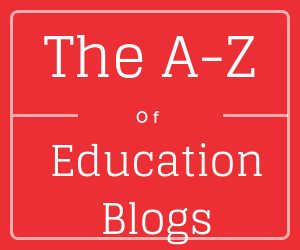Pass or Fail: Multiage Model for Improved Classroom Structure

In this multi-part series, I provide a dissection of the phenomenon of retention and social promotion. Also, I describe the many different methods that would improve student instruction in classrooms and eliminate the need for retention and social promotion if combined effectively.
While reading this series, periodically ask yourself this question: Why are educators, parents and the American public complicit in a practice that does demonstrable harm to children and the competitive future of the country?
Aren’t student’s individuals with varying merits and abilities? Doesn’t the notion that all 10-year-olds should master specific concepts and skills seem outdated?
Multiage Classroom Scenario
In a classroom with furniture loosely arranged around the teacher’s desk, and various nooks for reading or pursuing special projects, second-grader Michael is sitting with his teacher, reading a story he wrote about a watermelon. The teacher is enthusiastic, praising Michael and asking him if he would like to show the story to some of his classmates. He agrees, and they walk over to three third-grade girls who are sitting together at a table working on their stories. The teacher asks the third-graders if they would like to listen to Michael’s story, and they nod.
With plenty of confidence, Michael reads his story aloud, and the third-grade girls listen intently. One of the girls, Vanessa, comments on his choice of vocabulary: she liked his use of the adjective “juicy,” she says. They ask him to read the story again, and on the second pass, another girl, Karen, seems perplexed. The teacher asks if she has an issue with the story, and Karen says that she doesn’t understand the last line, which reads: “I like watermelon because when you make it.” She says that the sentence seems incomplete.
Michael is confused. He doesn’t know what Karen means when she talks about an incomplete sentence and looks to the teacher for help. The teacher encourages the girls to offer ideas. Vanessa thinks for a moment and then looks at Michael. “You can say: ‘when you make it, it tastes good,’” she offers. Michael thanks her for the suggestion, and he and the teacher return to their original spot. Michael decides he likes Vanessa’s proposed revision and changes the end of his story.
The Multiage Classroom Model
Multiage classrooms like the one depicted above are a growing phenomenon in the United States. The process of managing the organization of classrooms by grade is challenging. Even more challenging are the inconsistent policies of enforced retention and social promotion. If multiage classrooms are a starting point for reorganizing the American public-education system, there are models to choose from and the benefits of these models are quite clear.
The multiage classroom described by Leeds and others, operated according to the following principles: First, students were included in the classroom for at least a two-year span in chronological age. Second, each student in the classroom would remain with the same teacher or teachers for at least two years, and often longer.
With this model in place, teachers reported being able to perceive each student not as a member of a graded grouping but as an individual with multiple qualities and capabilities. There is no need to assess each child based solely on his or her level of development, with the graded standards and age-based expectations applied in that assessment context.
Multiage Learning Benefits
A report recently indicated that the main academic benefit derived from multiage classrooms was peer tutoring. This method involves having older students work directly with younger students to transfer skills and knowledge. Benefits to both the older and younger students, the tutor and the tutee, include more independence and greater confidence. In fact, peer tutoring, as a practice in the classroom, not only builds confidence in children but can help resolve learning challenges of students who struggle academically. Problem-solving skills are also easily developed through this approach.
As a teacher, wouldn’t there be a huge advantage to spending more time teaching and bonding with struggling students? This is achieved when the issue of grade retention or promotion is removed from the equation entirely, such as in the multiage classroom.






